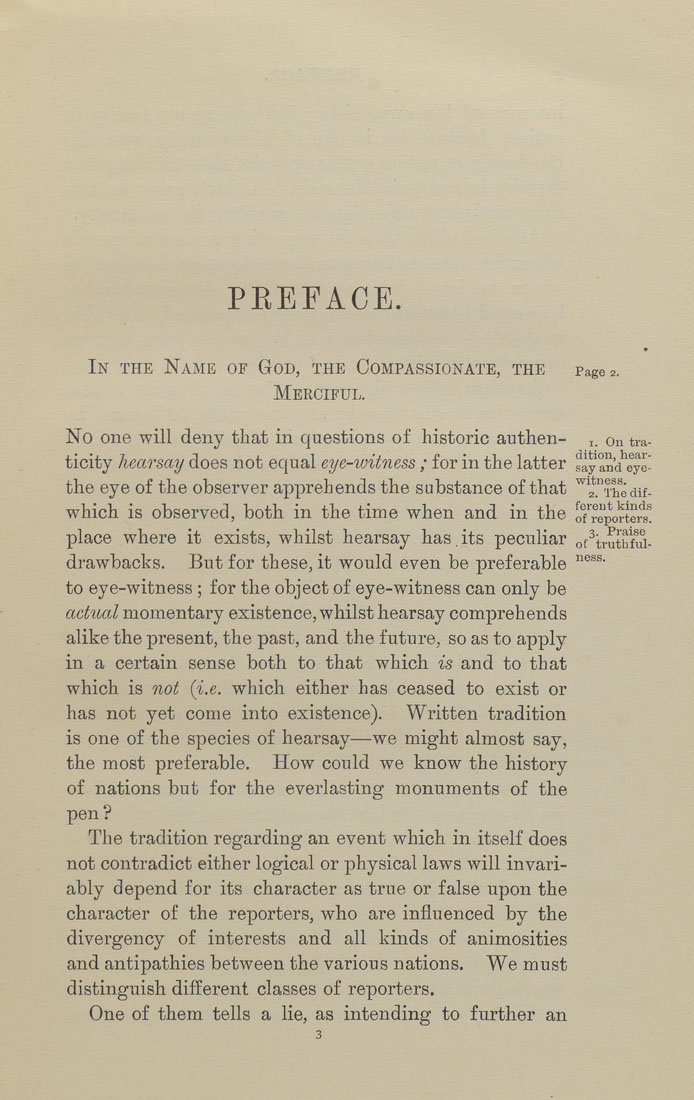Bīrūnī, Muḥammad ibn Aḥmad, Alberuni's India (v. 1)
(London : Kegan Paul, Trench, Trübner & Co., 1910.)
|
||
|
|
|
|
| Page 3 |

ness. PEEFACE. In the Name of God, the Compassionate, the Pages. Merciful. No one will deny that in questions of historic authen- i. on tra- ticity hearsay does not equal eye-witness ; for in the latter say and eye- the eye of the observer apprehends the substance of that ^^"Tifedif- which is observed, both in the time when and in the oTreportert! place where it exists, whilst hearsay has.its peculiar of^truthftfi- drawbacks. But for these, it would even be preferable to eye-witness ; for the object of eye-witness can only be actual momentary existence, whilst hearsay comprehends alike the present, the past, and the future, so as to apply in a certain sense both to that which is and to that which is not (i.e. which either has ceased to exist or has not yet come into existence). Written tradition is one of the species of hearsay—we might almost say, the most preferable. How could we know the history of nations but for the everlasting monuments of the pen? The tradition regarding an event which in itself does not contradict either logical or physical laws will invari¬ ably depend for its character as true or false upon the character of the reporters, who are influenced by the divergency of interests and all kinds of animosities and antipathies between the various nations. We must distinguish different classes of reporters. One of them tells a lie, as intending to further an |
| Page 3 |







